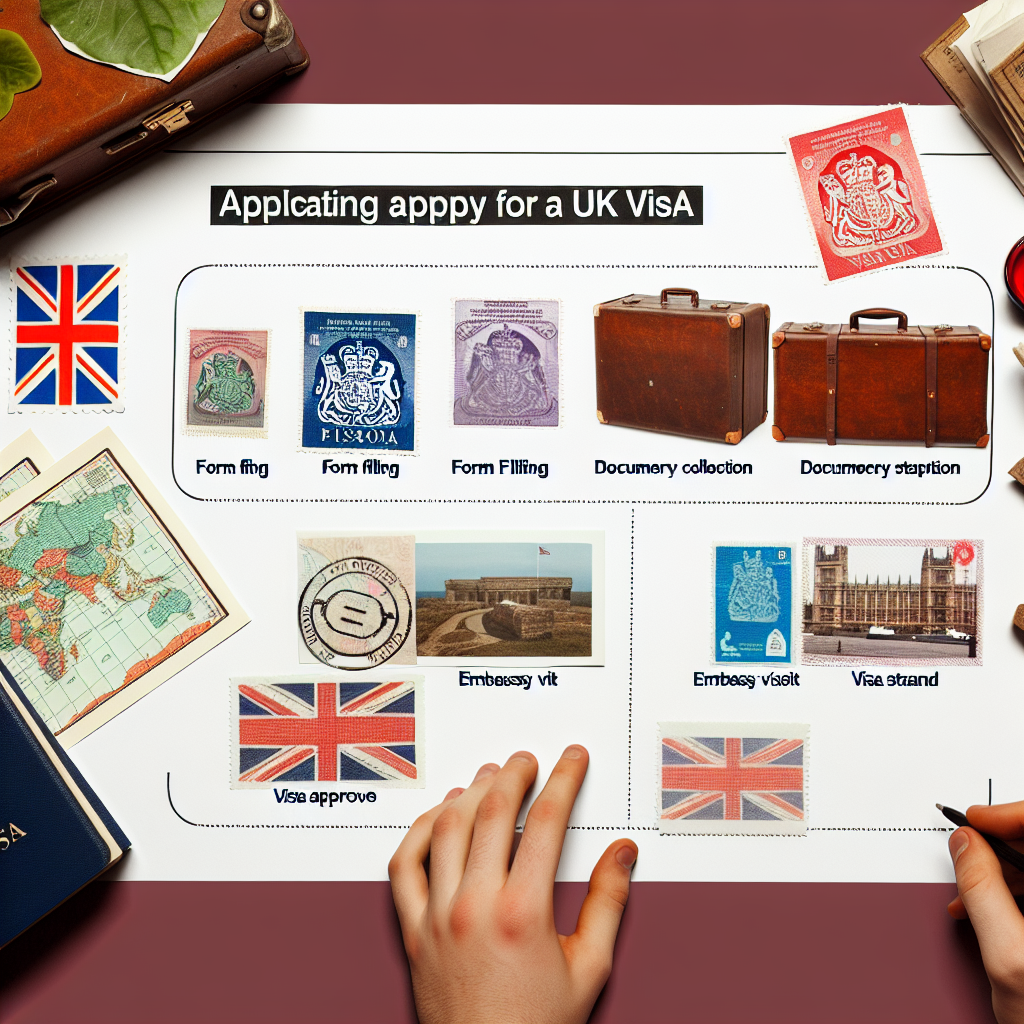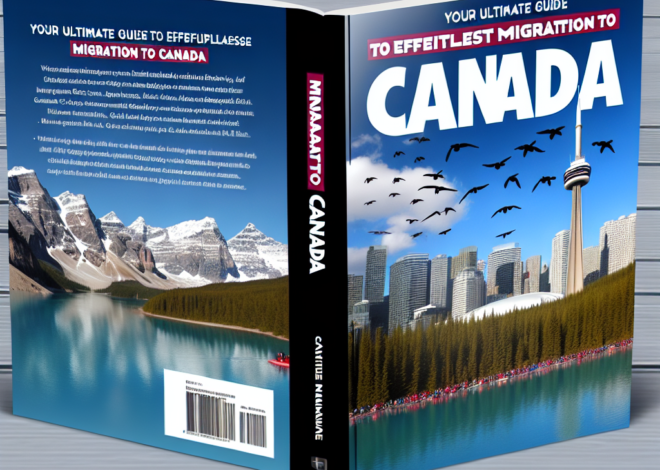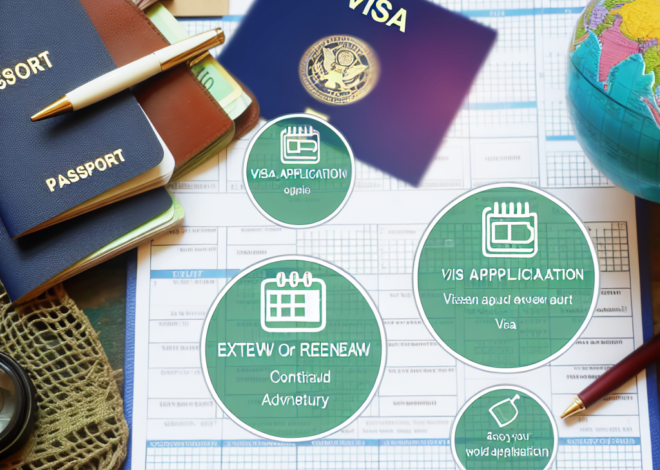
The visa application process for UK: A comprehensive guide
-
Table of Contents
“Unlocking the UK: Your Ultimate Guide to Navigating the Visa Application Process”
Introduction
The visa application process for the United Kingdom involves several steps designed to assess the eligibility and intentions of individuals wishing to enter the country. Whether for tourism, work, study, or permanent residency, each applicant must navigate through a structured procedure that includes filling out the appropriate forms, submitting necessary documents, and often attending an interview. This guide provides a detailed overview of the process, including types of visas, required documentation, application fees, and processing times, aimed at helping potential applicants understand and successfully complete the requirements for securing a UK visa.
Understanding the Different Types of UK Visas: A Detailed Overview
The United Kingdom offers a diverse array of visa options to accommodate the varied purposes of potential visitors and residents. Understanding the different types of UK visas is crucial for anyone planning to travel, work, study, or live in the UK. This comprehensive guide aims to elucidate the various categories and help applicants choose the right visa for their specific needs.
Firstly, the Standard Visitor Visa is one of the most common types. It is designed for those who wish to visit the UK for up to six months for leisure, business, or other short-term purposes. This visa category is suitable for tourists, people visiting family and friends, and business professionals attending meetings or conferences.
Transitioning from short-term stays, those planning to study in the UK will need to apply for a Student Visa. This is required for individuals who intend to undertake a long-term educational course at a UK institution. The Student Visa has specific requirements, including a confirmed place at an approved institution and proof of sufficient funds to cover tuition fees and living expenses.
For individuals looking to work in the UK, there are several visa options depending on the nature and duration of the employment. The Skilled Worker Visa, for instance, is aimed at those who have a job offer in the UK from a licensed sponsor and meet the skill and salary threshold. This visa has replaced the Tier 2 (General) work visa and allows individuals to stay in the UK and work in an eligible job.
Moreover, the Global Talent Visa is designed for leaders or potential leaders in academia, research, arts, and culture. This visa allows a more flexible approach as it does not require a job offer but does require applicants to be endorsed by a recognized UK body.
For those looking to establish a business in the UK, the Innovator Visa and Start-up Visa provide pathways. The Innovator Visa is targeted at experienced businesspeople who have an innovative, viable, and scalable business idea that has been endorsed by an approved body. Conversely, the Start-up Visa is tailored for early-stage but high potential entrepreneurs starting a business for the first time in the UK.
Additionally, there are visas available for specific situations such as the Ancestry Visa, which can be applied for by Commonwealth citizens with a grandparent born in the UK, allowing them to work and live in the UK. Similarly, the Family Visa is available for those who want to join family members living permanently in the UK.
Each visa type has its own set of requirements, application procedures, and associated fees. Applicants must provide various documents, including proof of financial means, accommodation information, and in some cases, a tuberculosis test result. The application process typically involves filling out an online form, submitting the necessary documentation, and attending an interview at a visa application center.
In conclusion, navigating the array of UK visa options can be daunting. However, by carefully considering the purpose of your visit and the duration of your stay, you can select the appropriate visa category. It is advisable to consult the official UK government website or seek guidance from immigration experts to ensure compliance with the visa requirements and to facilitate a smooth application process. Understanding these options is the first step towards planning a successful journey to the UK.
Step-by-Step Guide to Completing Your UK Visa Application
The visa application process for the United Kingdom can seem daunting at first, but with a clear understanding of the steps involved, applicants can navigate the process with confidence. This comprehensive guide provides a detailed walkthrough of the entire procedure, ensuring that potential visitors or migrants are well-prepared to complete their UK visa applications successfully.
Firstly, it is crucial to determine the type of visa you require, which depends on the purpose of your visit, whether it be for tourism, work, study, or joining family members. The UK government offers a variety of visa categories, each with specific criteria and documentation requirements. Once the appropriate visa type has been identified, the next step is to gather all necessary documents. These typically include proof of financial means, a valid passport, employment details, accommodation information, and a detailed travel itinerary. For certain visas, additional documents such as a sponsorship letter or evidence of relationship might be required.
After assembling the required documents, the next phase involves completing the online application form. This form is accessible through the UK government’s official visa and immigration website. Applicants must fill out the form meticulously, ensuring all information is accurate and matches the details in the supporting documents. Any discrepancies could lead to delays or a denial of the visa application.
Following the submission of the online application, the applicant will need to pay the applicable visa fee. This fee varies depending on the visa type and duration of stay. Payment is usually made through the online platform during the application process. It is important to keep a receipt of this transaction, as it may need to be presented during the visa interview or as part of the documentation process.
Subsequently, applicants are required to book an appointment at a Visa Application Centre (VAC). During this appointment, biometric information including fingerprints and a photograph will be collected. The appointment is also an opportunity to submit the physical copies of the documents that support the application. It is advisable to check in advance which documents need to be submitted in original form and which ones require photocopies.
In some cases, attending an interview might be part of the application process. The interview, conducted either at the VAC or via a teleconference, allows the visa officers to clarify any doubts about the information provided in the application and to ensure that the applicant meets the requirements of the UK visa for which they are applying.
Once the interview is completed and all documents are submitted, the waiting period begins. Processing times can vary significantly based on the type of visa applied for and the individual circumstances of the applicant. During this period, it is possible to track the status of the application through the website used for the initial application.
Finally, once the visa is approved, it will be either mailed to the applicant or made available for pickup at the designated VAC. It is essential to review the visa to ensure that all details are correct and understand the conditions attached to the visa, such as the duration of stay and any entry requirements.
By following these steps carefully and preparing thoroughly, applicants can enhance their chances of a successful UK visa application, paving the way for a smooth journey to the United Kingdom.
Common Mistakes to Avoid in the UK Visa Application Process
The visa application process for the United Kingdom is meticulous and demands careful attention to detail. Many applicants, however, fall into common pitfalls that can delay or even derail their chances of approval. Understanding these mistakes can significantly enhance your application’s likelihood of success.
One of the most frequent errors is failing to complete the application form correctly. Every question on the UK visa application form must be answered fully and truthfully. Leaving sections incomplete or providing inconsistent information can lead to misunderstandings or suspicions about the authenticity of your application. It is crucial to double-check all entries and ensure that the information matches any supporting documents you are required to submit.
Another common oversight is not providing sufficient documentation. The UK visa authorities require specific documents to process your application, such as proof of financial means, employment status, and the purpose of your visit. Applicants often underestimate the importance of these documents, leading to submissions that lack necessary details like bank statements, employment letters, or invitations. It is essential to consult the latest guidelines from the UK government’s official website to confirm which documents are required for your specific visa category.
Moreover, timing is a critical aspect often overlooked by many applicants. Visa processing times can vary, and waiting until the last minute to apply can result in not receiving your visa in time for your travel. It is advisable to apply well in advance of your planned departure date. This foresight not only allows for any unforeseen delays in the processing of your application but also provides ample time to gather all the necessary documentation without haste.
Applicants also frequently misjudge the importance of the interview process. If required, the visa interview can be a pivotal part of the application process. During the interview, inconsistencies in your application or a failure to convincingly answer questions about your travel plans and background can lead to a visa refusal. Preparing thoroughly for the interview, including reviewing your application and supporting documents, can help you present a coherent and convincing case to the visa officer.
Lastly, a significant mistake made by applicants is not paying the correct visa fee or following the payment instructions accurately. The UK visa application process involves specific fees that can vary depending on the type of visa and the applicant’s circumstances. Incorrect fee payments or non-adherence to the payment guidelines can result in application delays or rejections. Ensuring that you understand the fee structure and payment method is therefore imperative.
In conclusion, while the UK visa application process can seem daunting, avoiding these common mistakes can help streamline your experience. By filling out the application form carefully, providing all required documentation, applying in a timely manner, preparing for the interview, and paying the correct fees as instructed, you can enhance your chances of a successful visa application. Remember, meticulous preparation and attention to detail are your best tools in navigating this complex process.
Tips for a Successful UK Visa Interview: Preparing Documents and Answers
The visa application process for the UK can be a daunting task, but with the right preparation, particularly for the visa interview, applicants can significantly enhance their chances of success. This section provides a comprehensive guide on how to prepare documents and answers for a successful UK visa interview.
Firstly, gathering and organizing all required documents is crucial. Applicants must ensure that they have all the necessary paperwork in order, as missing or incorrect documents are among the most common reasons for visa application rejections. Typically, this includes a valid passport, proof of financial means, a detailed travel itinerary, and, depending on the visa type, evidence of accommodation and ties to your home country. It is advisable to check the UK government’s official website or consult with an immigration expert to get a detailed list of required documents specific to your visa category.
Once you have all the documents, it is essential to arrange them in a logical order. This not only shows that you are well-prepared but also makes it easier for the visa officer to review your application during the interview. A pro tip is to create a checklist and tick off each document as you collect it, ensuring that nothing is overlooked.
Transitioning from documents to preparing for the interview questions, it is important to understand that the interview is a critical component of the visa application process. The purpose of the interview is to verify the information provided in your application and to assess whether you meet the criteria for the visa you are applying for. Therefore, preparing thoughtful and honest answers to potential interview questions is key.
Common questions you might encounter include the purpose of your visit, your plans during the stay, how you will fund your trip, and your intentions after the visa expires. It is beneficial to rehearse your answers, but they should come off as natural and not memorized during the interview. Be concise and stick to the point, providing enough detail to support your answers.
Moreover, consistency is crucial. Ensure that the information you provide during the interview matches the details in your application form and your documents. Any discrepancies between your interview answers and your documents can raise concerns about the credibility of your application.
Another important aspect is the presentation. Approach the interview with confidence and maintain a positive demeanor. Dress formally and arrive early, allowing yourself ample time to calm any nerves and review your documents and answers one last time.
Lastly, be prepared to answer potentially tricky questions that may test your intentions or the authenticity of your application. For instance, you might be asked about your connections to your home country or about your past travel history. In such cases, honesty is the best policy. Provide clear and direct answers that reflect your genuine intentions and situation.
In conclusion, thorough preparation of your documents and answers can significantly influence the outcome of your UK visa interview. By ensuring that all paperwork is meticulously organized and by preparing well-thought-out answers to potential interview questions, you can present a strong case to the visa officer, thereby increasing your chances of a favorable decision. Remember, the key to success in any visa interview is preparation, presentation, and honesty.



